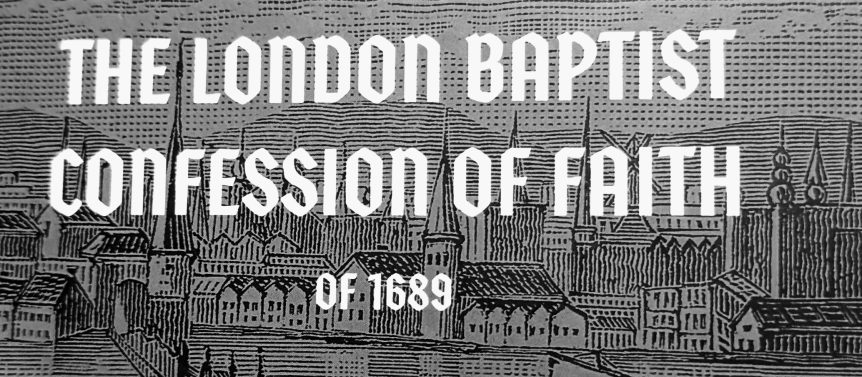By Pastor Luke Lemberg 4/11/25 Published at Biblical Foundations of Confessional Practice – TruthScript
Christianity is a confessional religion. In fact, every religion, if serious, has a confession of some kind. Judaism has the “Bar Mitzvah” by which a young Jewish Boy or Girl is declared to a “son of the Law” (which it what “Bar Mitzvah” means in the Jewish language). Islam had the Shahada, by which a new convert has to say in Arabic that “Allah is the only God and Muhammed is his true prophet.” Even the atheist must confess that he doesn’t believe that God exists at all. Lastly, the Christian must “…confess with thy mouth the Lord Jesus…” In short, at the foundation of every religion is a confession of some sort.
Definitions
What is a confession? A simple definition is “a positive statement of what is believed.” To test to see if this definition holds, we can insert the definition into different circumstances and see if it holds true. A criminal confesses to a crime by having a positive statement of belief in his own guilt. A man confesses his love for a woman, giving a positive statement about the devotion he believes he has for her. With these two examples, we can see how the simple definition works.
What does it mean to have a ‘positive’ statement? Stating something is the positive is saying, “I believe,” where the negative statement would be, “I do not believe,” or simply put, a denial. While thinking of a confession as a document, there will be a focus on the belief rather than the denial.
Positives and negatives are used in many different circumstances that are common to our everyday living. In politics, candidates generally make a promise to have a solely positive campaign rather than a negative one. This means that a candidate is going to focus on why they ‘ought to’ be in the office, or why they believe they should be, rather than focusing on why their opponent ‘ought not to be.’
When thinking about a Confession as a document, we should understand that confessional documents are far more focused upon what is to be believed, or positive, rather than any denials.
I believe that confessionalism is something that is missing in the modern church today, or, at least, the church has the practice of not writing them down. Modern evangelical confusion is born out of a practice of not making known what churches confess until someone goes outside the unwritten, undrawn boundaries of the church they are a part of.
Unwritten confessions also create difficulties in finding good churches if we are in need to move into a new area or in need of a new church after finding the theological boundaries of a church and finding they’re not very good boundaries.
Good confessional practice is a great foundation for good church community based in solid biblical doctrine. No confession is on the level of Scripture but, as a reflection of biblical truth, is a way to create unity in the body of Christ. Confessional documents are meant to define what we are and also create unity with like-minded believers. Unity and the bond of peace are far more obtainable if we have our beliefs written down.
That is why there is biblical and historical precedent for the practice of confessionalism. There are also great practical reasons to adopt a confessional document for the Church. We’ll first look at the biblical precedent.

Confessions in Scripture
So, where do confessions of faith start? In the Scriptures.
First, there is the confession of the Old Testament, also known as the Shema. It is found in Deuteronomy 6:4,
Hear, O Israel: The LORD our God is one Lord: and thou shall love the LORD thy God with all thine heart, and with all thy soul, and with all thy might.
This was the confession of the people of God, which separated them from the peoples around them and created the unity they were supposed to have going into the Promised Land. This was also the confession that would allow those not naturally born in Israel to become assimilated into the people, such as Rahab and Ruth, meaning that they could be united to the people by confession.
Jesus also makes a confession. Paul the Apostle, in His first letter to Timothy, said of Jesus that he “before Pontius Pilate witnessed a good confession.” What was the confession that Jesus made to Pilate? It was: “To this end I was born, and for this cause came I into the world, that I should bear witness to the truth.” There were also the assertions that Jesus made of Himself that are captured within the “I am” statements that John records for us. Others can be found throughout the rest of the Gospels where Jesus proclaims Himself to be the Son of God and have all the privileges of being that Son of God. This is why the religious leaders many times wanted to take up stones and stone Jesus.
Next, there is the Confession of Peter, where he says that Jesus is the Christ. Jesus praises this confession and says that it is the foundation of the Church He will build. What’s amazing about this confession is that later, when Peter had the opportunity to make a confession while Jesus was on trial, he ended up making a denial rather than the confession that was made earlier. However, after that, on the day of Pentecost, Peter was filled with the Holy Spirit and made a bold confession of Christ to all the people that were there that day. That confession led to about 3,000 souls coming to faith and the foundation of the Church being born.
As the Church grew, false teachers came in and started to spread false doctrines and heresies that were attacks against the institution and the people of God. In fact, these false teachings were coming in during the lives of the apostles, meaning that in the Scriptures, there are arguments against these early forms of false doctrine.
John the Apostle makes confession an integral part of knowing who is and who isn’t in the faith. In 1 John, he writes, “Hereby know ye the Spirit of God: Every Spirit that confesseth that Jesus Christ is come in the flesh is of God: and every spirit that confesseth not that Jesus Christ is come in the flesh is not of God: and this is that spirit of antichrist…” Notice that there is a test of confession to a particular doctrine that has become the litmus test for any teachers that come to the congregation.
As the church grew and spread over the known world, there was a need to create confessions and creedal statements that defined the church more precisely so that true doctrine was able to be upheld, and the church was to remain pure as much as it could. We will explore that in the next of this series on confessionalism.

